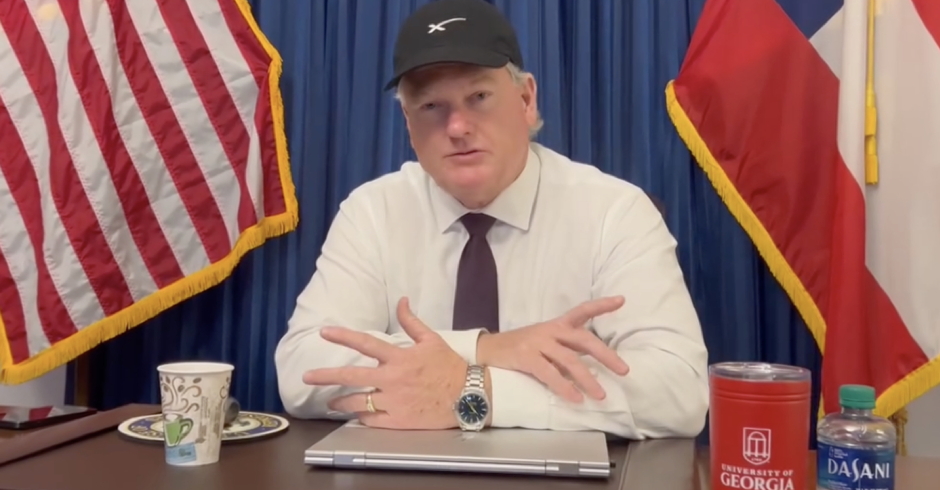An American Mourning: A Remembrance of Emmett Till, Rodney King And Trayvon Martin
“They may torture my body, break my bones, even kill me. Then they will have my dead body, but not my obedience.â€Â Mahatma Gandhi
Mississippi 1955. If you know the name of Emmett Till, murdered fifty-seven years ago on this day, August 28th, then you know that his death was a crucial turning point for the Civil Rights movement in America. What you may not know is that Emmett was a breech baby, that he was talented at art and science, and was a very good speller. At six years of age, he contracted polio, and was left with a stutter. His nickname was “Bobo†and he loved to play pranks on his friends. His mother would often recall his beautiful teeth. On his trip to Money, Mississippi to visit family in the South, she finally gave him his father’s ring to wear. Perhaps she saw, as he boarded the train, handsome in his suit and hat, that her fourteen-year-old son was now becoming a man.
Facts like this may not matter to those interested in Emmett Till the historical icon, but when people become icons, the smaller details, the ones that keep his memory alive, obviously don’t make newspaper headlines. An icon belongs to the public, and to history books, preserved in the amber of memory.  In The Untold Story of Emmett Louis Till, his mother Mamie Till Mobley remembered that they almost missed the train, that they could hear the whistle blowing. As Emmett ran up the steps, she said to him, “Wait a minute. You didn’t kiss me goodbye, where are you going? How do you know I’ll ever see you again?†and he said, “Aw, Mama†and gave his mother a kiss. He also gave her his watch for safekeeping because he wouldn’t be needing it, and she wore it home. This is what a mother remembers.
Till, like many black children from the North visiting Southern relatives for the first time, was warned about the white people and Southern life in 1955. Mobley was right to be concerned about Emmett. As his friends described him, Emmett liked mischief and was sometimes fearless; one friend later described him as having no sense of danger. For a black boy who grew up in Chicago, who bragged to his cousins of having white friends in his class, and even a white girlfriend, Money, Mississippi might as well have been Mars.
The kind of racism Emmett would face wasn’t something that could be combated with a rulebook. The particular lessons of Southern racism were learned in blood, passed down through generations. While Northern cities had their own forms of discrimination and brutality, Mississippi had to have been a psychological time warp for a boy like Emmett, a place where blacks lived under constant mental and physical terror, no matter how deceptively pretty the landscape. Emmett hadn’t grown up in a world where whites were Ma’am and Sir, where a perceived sign of disrespect, eye contact, for example, or the slightest hesitation when a white man or woman gave an order, could lead to lethal repercussions – the loved one being taken in the middle of the night and “disappeared,†to be found later hanging from a tree.  The relationship between Southern whites and blacks was an intricate and complicated routine: grotesque,  but with subtle inflections and nuances. Like a held breath, peace depended on blacks’ knowing their place at every moment; explosive violence, the subtext to all black and white interactions, could be released at any time. How could Emmett at fourteen really understand a system where blacks had no protection under the law, were intimidated to discourage them from voting or demanding fair wages, where it was inconceivable that a black man would testify against a white man in court? Arriving in this unfamiliar apartheid, he might as well have been on a ship to South Africa.
The rest of the story is legend; on August 24, Emmett went to a store with his cousins in Money, Mississippi to buy candy. It is disputed what happened in the store; some say that Till whistled at the white woman who owned the store with her husband, others maintain the whistle was part of Emmet’s speech impediment. Other accounts say that his indiscretion was that his hand touched hers when he gave her the money. Whatever it was, in her mind she had been violated, so she went out to her car and got her gun. The boys left the store, and Emmett, frightened at first by the reaction around him, eventually put it behind him. Four days later, Till would be found in a bayou, tied with barbed wire to a seventy-pound cotton gin, bloated by the water and mutilated beyond recognition, one eye torn out and one missing, his skull split in half, and a bullet-hole through his head.
Ray Bryant, his half-brother, J.W. Milam, and another man who some sources say was black, came in the middle of the night and took Till from his bed in front of his family; they threatened to kill his great-uncle Mose Wright if he reported what he had seen. Everyone assumed that they would abuse Till as a punishment, but being a child, they would eventually bring him back. Soon after Till’s body was found, Milam and Bryant, were tried and acquitted for the murder. A grand jury refused even to indict them of kidnapping. Protected under the laws of double jeopardy, and thus unable to be tried again for the crime, they later admitted to Look magazine that they had committed the murder.
Despite the brutality of the crime, there were many whites and even some blacks that felt Emmett got what he deserved, that he was “showing out†and should have known better.  It is easy to fall into this trap, needing Emmett to be a perfect boy, an angel, in order for him to be a victim. If Emmett was disrespectful to an adult, then he deserved to be talked to by his family — he didn’t deserve to pay with his life. Mamie said in interviews that she raised her son to be a gentleman, and the story of Emmett as a cussing, disrespectful hoodlum wasn’t true.  Recalling the case, I think about Trayvon Martin, lying dead in a morgue, as controversy surrounds what he was wearing the night he was killed, what he bought at the store, what he was doing in that neighborhood in the first place. When Bryant showed the body of Emmett Till soon after his murder to a local black man, the man was quoted as saying, “That’s what smart niggers get.â€
Smart niggers make certain white people nervous in America. Sometimes they can’t be controlled; they may even run for president, and win. Emmett was supposed to be an example, as lynchings always were, to other boys his age who may have been impressed by their cousin from Chicago: this is what happens when you forget who you are. Know your place, and if you can’t remember, the Ku Klux Klan will be happy to remind you. As I reflect on Emmett, I remember South Carolina representative Joe Wilson shouting, “You lie!†at the President’s speech on health care, and the reporter Neil Munro heckling the President during a press conference about homeland security. Obama handles these moments with grace, but I feel outrage for him, because this isn’t an issue of politics, but of white supremacy. Obama is proud and unyielding. These men apologized for their behavior, but the damage was done and they knew it. What is most appalling is that they are willing to disrespect the highest office in our country, a national security issue, because they can’t resist disrespecting a black man. And now Trayvon Martin is dead because someone who felt the same entitlement couldn’t get his hands on Obama, who acknowledged after Martin’s murder that Trayvon could have been his son. The neighborhood that Zimmerman was “watching†was America, and Martin, in Zimmerman’s view, didn’t belong, didn’t respect his authority, didn’t know his place.
Mississippi 1991.  Rodney King is beaten by seven police officers after a car chase. While the incident took place in Los Angeles, the ruthlessness of the officers and the crime against him recall the Mississippi Emmett faced thirty-six years before. And like the corpse of Emmett Till, revealed for all the world to see, the assault on Rodney King was videotaped by George Holliday, a man watching from the balcony of his apartment. King, like Till, was also violated a second time, by the legal system. Three of the police officers in that trial were acquitted, and a jury was unable to agree on a verdict for the fourth. While the federal government later pursued the case, King was denied real justice, and riots ensued in L.A. after the verdict was read. Rodney King is dead, and his death by accidental drowning, as we await the trail of George Zimmerman, feels like the premonition of a greater tragedy that awaits us. I am frightened about the Zimmerman trial; this country cannot stand another unjust verdict.
Mississipi 2012. George Zimmerman shoots Trayvon Martin as part of his “neighborhood watch†in Sanford, Florida; he claims that when he approached Martin and questioned him, Martin tried to attack him, and that he ended up using his gun in self-defense. The words he puts in Martin’s mouth to justify his actions towards the victim are reminiscent of Bryant and Milam’s claims that as they were beating Till, he was shouting back at them, calling them bastards, telling them that he was their equal, and that he had white girlfriends. As Zimmerman has already lied to the public, it is hard to know what to believe.
In an interview with Fox News’ Sean Hannity, Zimmerman says that he has no regrets about getting out of the car the evening of Martin’s death, against the advice of the police. He then says the shooting of Trayvon Martin was the “will of God.†To some, Trayvon should never have been in the neighorhood in the first place. It is Zimmerman who is the real victim, a folk hero. A judge revoked Zimmerman’s bail because he and his wife lied about how much money they had at the time of the bail hearing, not admitting to the $135,000 they had collected in donations on their website.  Zimmerman’s lying didn’t surprise me, but the money he raised did. In the documentary Emmett Till: The Untold Story, Dan Wakefield of the The Nation recalls:
“There were little jars for people to drop money in, in stores, in the drugstore, dry cleaners and commercial places in the town of Sumner for the defense of the two men accused of (Till’s) murder, and I must say it was a strange, eerie feeling, a very uncomfortable feeling, to see these little jars of money being collected to defend two men who it seemed (everyone) understood were the murderers.â€
The crimes against Emmett will remain an ultimate horror story in our collective conscience because of a mother’s courageous choice. We thank you, Mamie Till -Mobley. When the sheriff tried to rush to bury your son’s remains – knowing that if anybody saw the ripped-up mask that was once your baby’s face there would be global outrage – you had the burial stopped (literally as he was being lowered into the ground) and his body sent to you in Chicago. Then you were told by the funeral director that legally he wasn’t able to open the casket.  And you said, “Do you have a hammer?†When he replied yes, you told him, “If you can’t open the box, I can. And I’m going in that box.†In the end, he opened it for you and you stood there and saw what could have been your private horror. But you told them you wanted an open casket for the funeral, and when they offered to prepare the body, you said, “No, let the people see what I’ve seen.†And you stood up for your son, again and again, and for the promise of justice in our country which was never fulfilled for you or your child. You believed all men are created equal, when you walked into that courtroom, the long walk that ended in the acquittal of the men who murdered your beautiful boy who was a breech birth, who was good at art and science, who was a good speller, and who wore his daddy’s ring. And you made that walk again into the courtroom, even after the death threats, the mail that said you’d never leave the courtroom alive, you stood up for your son.
Emmett, your death was not in vain. Because of what happened to you, the world stopped on its axis for a moment, and black and white people in America and all over the world mourned and shared a mother’s grief. And whether what happened in the store that day was a misunderstanding, or a prank, or teenage insouciance, it was an act of resistance.  I believe you were fiercely independent, theatrical and bold, and that those men saw something in you that refused to cast your eyes down, to bow. Your act of resistance, like Rosa Parks’, was heroic, and so they smashed you, gouging your eyes from their sockets, because you dared look into theirs.
The day will soon come when we will be glued to our televisions, watching the trial of George Zimmerman, who might not be in jail at all if it had been up to some members of law enforcement in his state. Trayvon Martin’s parents, like your mother, have been accused of fueling racial tensions, of making a big deal over nothing, as they fight for his memory and defend the innocence of their son. When the trial ends, will then see if anyone really mourns your death, Emmett, if we have truly learned from our past. I have a sneaking suspicion we haven’t learned a goddamn thing. I fear for our country if this man is acquitted. And yet cynicism is an insult to your memory, and the memory of your mother, and so we wait for justice to be served.
Anticipating fresh heartbreak, somehow we get up and face another day. Mahalia sings: Sometimes I wonder how I got over. There is a story in the morning paper: Two-year-old shot in gang crossfire, on the evening news, a young athlete shot down trying to defend her younger brother, mourned by her girlfriend. We know that somewhere in this country, another black mother will bury her son or daughter today, a mother will make that long walk to her child’s casket. Emmett Till lives and dies every day in this country, in Chicago, Detroit, Los Angeles, New York, Washington D.C., Atlanta, Philadelphia. And whether the finger that pulls the trigger is black or belongs to the State, another black body is destroyed, American potential is destroyed. We grieve collectively for a day or two, but we have a very short memory in this country. Ask George Zimmerman’s accountant.
Â
 Max Gordon is a writer and activist. He has been published in the anthologies Inside Separate Worlds: Life Stories of Young Blacks, Jews and Latinos (University of Michigan Press, 1991), Go the Way Your Blood Beats: An Anthology of African-American Lesbian and Gay Fiction (Henry Holt, 1996) and Mixed Messages: An Anthology of Literature to Benefit Hospice and Cancer Causes. His work has also appeared on openDemocracy, Democratic Underground and Truthout, in Z Magazine, Gay Times, Sapience, and other progressive on-line and print magazines in the U.S. and internationally.
Max Gordon is a writer and activist. He has been published in the anthologies Inside Separate Worlds: Life Stories of Young Blacks, Jews and Latinos (University of Michigan Press, 1991), Go the Way Your Blood Beats: An Anthology of African-American Lesbian and Gay Fiction (Henry Holt, 1996) and Mixed Messages: An Anthology of Literature to Benefit Hospice and Cancer Causes. His work has also appeared on openDemocracy, Democratic Underground and Truthout, in Z Magazine, Gay Times, Sapience, and other progressive on-line and print magazines in the U.S. and internationally.

Enjoy this piece?
… then let us make a small request. The New Civil Rights Movement depends on readers like you to meet our ongoing expenses and continue producing quality progressive journalism. Three Silicon Valley giants consume 70 percent of all online advertising dollars, so we need your help to continue doing what we do.
NCRM is independent. You won’t find mainstream media bias here. From unflinching coverage of religious extremism, to spotlighting efforts to roll back our rights, NCRM continues to speak truth to power. America needs independent voices like NCRM to be sure no one is forgotten.
Every reader contribution, whatever the amount, makes a tremendous difference. Help ensure NCRM remains independent long into the future. Support progressive journalism with a one-time contribution to NCRM, or click here to become a subscriber. Thank you. Click here to donate by check.
 |










